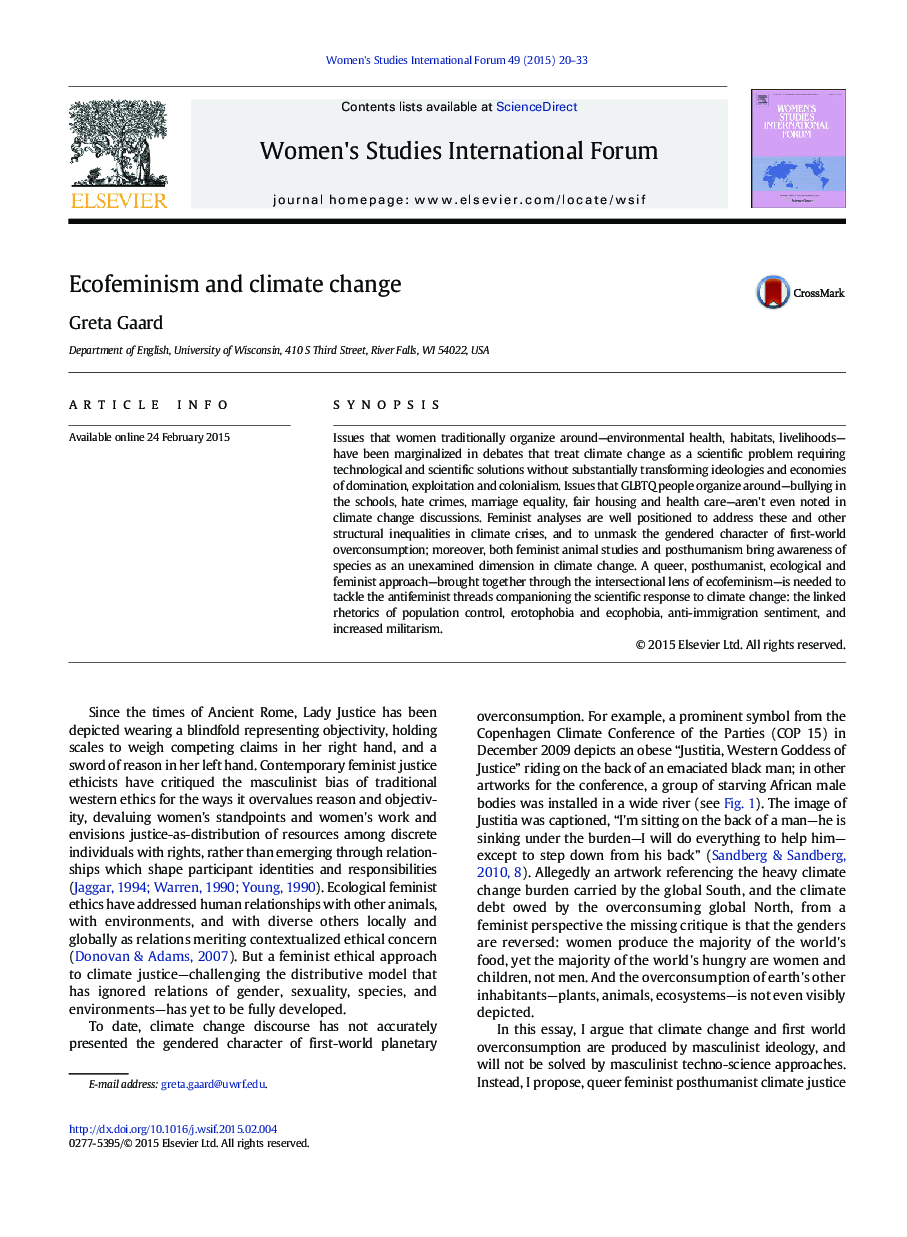| Article ID | Journal | Published Year | Pages | File Type |
|---|---|---|---|---|
| 376079 | Women's Studies International Forum | 2015 | 14 Pages |
SynopsisIssues that women traditionally organize around—environmental health, habitats, livelihoods—have been marginalized in debates that treat climate change as a scientific problem requiring technological and scientific solutions without substantially transforming ideologies and economies of domination, exploitation and colonialism. Issues that GLBTQ people organize around—bullying in the schools, hate crimes, marriage equality, fair housing and health care—aren't even noted in climate change discussions. Feminist analyses are well positioned to address these and other structural inequalities in climate crises, and to unmask the gendered character of first-world overconsumption; moreover, both feminist animal studies and posthumanism bring awareness of species as an unexamined dimension in climate change. A queer, posthumanist, ecological and feminist approach—brought together through the intersectional lens of ecofeminism—is needed to tackle the antifeminist threads companioning the scientific response to climate change: the linked rhetorics of population control, erotophobia and ecophobia, anti-immigration sentiment, and increased militarism.
